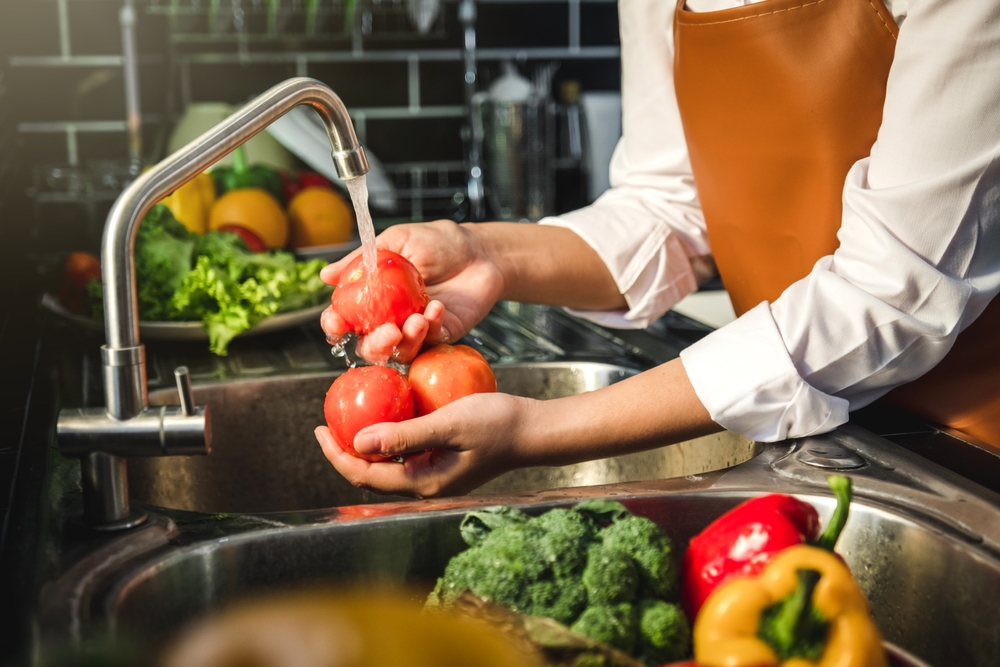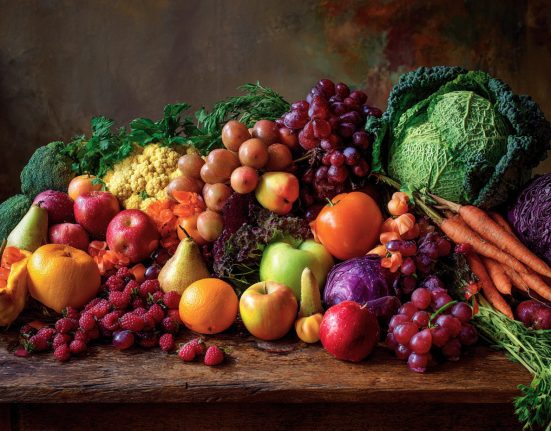The monsoon season brings relief from the scorching heat, but it also presents certain challenges when it comes to maintaining safe eating habits. Increased humidity and moisture levels can lead to food contamination and the proliferation of bacteria, making it essential to eat food safely during this season. To ensure your well-being and make the most of this rainy season, here are five ways to maintain safe eating habits during the monsoon.
The arrival of the monsoon season brings much-needed respite from the sweltering heat, offering a refreshing change in the climate. However, along with its soothing rains and cooler temperatures, the monsoon also ushers in challenges when it comes to maintaining safe eating habits.
The increased humidity and moisture levels during monsoon create an environment conducive to food contamination, making it essential to exercise caution in what and how we consume during this time. While indulging in the culinary delights of the rainy season, its crucial to prioritize our health and well-being by adopting safe eating practices.
During the monsoon, there’s an increased risk of water contamination, which can easily find its way into food. Street vendors may not have access to clean water or proper sanitation facilities, which can lead to unhygienic food handling practices. Moreover, street food is often prepared and served in the open air, exposing it to dust, pollutants, and insects. Rainwater can further contaminate the food.
While street food can be a delightful part of experiencing Indian cuisine, its essential to exercise caution, especially during the monsoon season. To reduce the risk of foodborne illnesses, consider eating at reputable food stalls and establishments with good hygiene practices and avoiding raw or undercooked foods. Additionally, stay hydrated with bottled water and carry hand sanitizer to maintain hand hygiene when dining out.
Prioritize Hygiene:
Hygiene is of paramount importance during the monsoon season. Properly wash your hands with soap and water before eating or handling food. Keep your kitchen clean and dry, as damp environments encourage the growth of bacteria. Wash fruits and vegetables thoroughly under running water to remove dirt and potential contaminants.
Additionally, avoid using damp cloth towels to dry dishes, as they can harbor bacteria and spread contamination. Ensuring hygiene in food is imperative to prevent foodborne illnesses and maintain public health. It involves rigorous practices such as washing hands thoroughly before handling food and cleaning and disinfecting cooking surfaces, utensils, and cutting boards to prevent cross-contamination.
Properly washing fruits and vegetables under running water before consumption and ensuring that meats and seafood are cooked to appropriate temperatures are crucial steps. Moreover, maintaining personal hygiene and wearing clean attire while preparing and serving food helps prevent the transfer of harmful bacteria. By adhering to stringent hygiene measures throughout the entire food preparation process, from storage to cooking and serving, we can safeguard the well-being of individuals and communities alike.
Consume Fresh Foods:
Opt for fresh, seasonal foods during the monsoon. Freshly harvested produce is less likely to have been exposed to excess moisture, reducing the risk of bacterial growth. Purchase foods in smaller quantities and consume them quickly to avoid spoilage. Avoid consuming pre-cut fruits and vegetables from street vendors, as they may not have been stored properly and could lead to foodborne illnesses.
Consuming fresh foods during the monsoon holds immense importance due to the heightened risk of bacterial and fungal growth in the humid environment. Fresh foods provide essential nutrients, vitamins, and minerals that bolster the immune system, which is particularly crucial during a season associated with a higher prevalence of waterborne diseases.
Opting for fresh produce also ensures better taste, texture, and nutritional value compared to preserved or canned alternatives. By prioritizing fresh foods, individuals can enhance their overall health, minimize the risk of foodborne illnesses, and make the most of the monsoon’s bounty while embracing a balanced and nourishing diet.
Choose Cooked Foods:
Cooked foods are generally safer to consume during the monsoon. When preparing meat and seafood, ensure they are thoroughly cooked to the recommended temperatures to eliminate any potential bacteria or parasites. Choosing cooked food during monsoons is a prudent choice due to the increased risk of foodborne illnesses and contamination that often accompany this season.
Cooking food at high temperatures not only enhances its flavors but also eliminates potential pathogens, parasites, and bacteria that thrive in moist conditions. Hot cooking methods such as boiling, frying, or grilling destroy harmful microorganisms that can cause digestive issues and illnesses.
Additionally, cooked food is less likely to harbor moisture, which can contribute to spoilage. Opting for freshly cooked meals minimizes the chances of consuming contaminated or spoiled ingredients, ensuring a safer and more enjoyable dining experience during the rainy season.
Stay Hydrated with Safe Drinks:
Staying hydrated is crucial, but be cautious about the source of your beverages. Stick to bottled or filtered water to avoid waterborne diseases. If you’re consuming beverages from outside, ensure they are served in clean and dry glasses. Staying hydrated with safe drinks in the monsoon requires a combination of mindfulness and careful selection. While the season brings its share of rain and cooler weather, its important not to underestimate the need for hydration due to increased humidity.
Opt for safe beverages such as bottled or filtered water to mitigate the risk of waterborne diseases. If you’re seeking variety, herbal teas, freshly brewed hot beverages, and homemade soups can provide warmth and hydration simultaneously. Avoid street vendor beverages or drinks with uncertain sources, as they might pose contamination risks. By making informed choices and maintaining a consistent fluid intake, you can ensure your hydration needs are met while prioritizing your health and well-being during the monsoon.
Preserve and Store Properly:
Proper storage techniques are essential to prevent food spoilage. Keep perishable items like dairy products, meats, and leftovers in the refrigerator to maintain their freshness. Invest in airtight containers to prevent moisture from seeping into stored food items. Avoid leaving food uncovered, as it can attract insects and contaminants.
Additionally, refrain from consuming foods that have been left at room temperature for extended periods, as they may have become breeding grounds for harmful bacteria. Preserving and storing foods properly during the monsoon is crucial to preventing spoilage and contamination. To ensure food safety, keep perishable items like dairy, meats, and cooked leftovers in the refrigerator at or below 4°C.
Store dry goods like grains, flours, and cereals in cool, dry places away from direct sunlight. Additionally, regularly clean and sanitize your refrigerator and storage areas to prevent the growth of bacteria and mold. By following these practices, you can extend the shelf life of your food and minimize the risk of foodborne illnesses during the monsoon season.
Prioritize cleanliness, consume fresh and cooked foods, opt for safe beverages, and store your food properly to minimize the risk of foodborne illnesses and enjoy the season to its fullest. By following these five essential tips, you can savor the delights of the monsoon without compromising your health and well-being. Embracing these practices is not only a matter of individual health but also a responsibility to our loved ones. As we immerse ourselves in the magic of the monsoon, let us remember that safeguarding our well-being amplifies the joy of this season.








